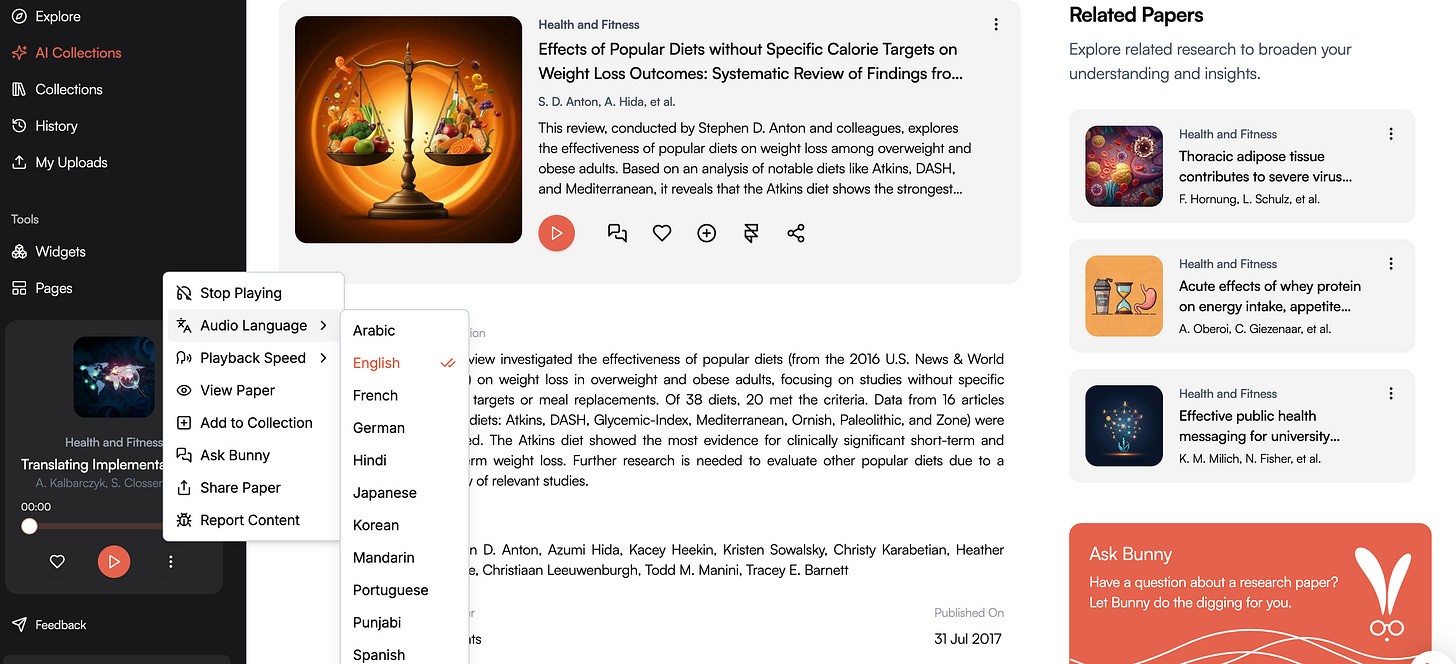Breaking Language Barriers🌍
Language should not be a barrier to knowledge—it should be a bridge.
The Problem: Language as a Barrier to Research
Every day, thousands of research papers, reports, and insights remain inaccessible simply because they are not available in the right language. The research world is vast, but language barriers create gaps in collaboration, understanding, and impact.
Enter ResearchBunny…
With over half of the world’s population speaking a language other than English, research needs to be more inclusive and adaptable.
The Tangible Challenges Faced by Researchers
Lost Potential: Groundbreaking studies, often published in languages other than English, remain unread and underutilised, stifling innovation.
Limited Reach: Non-English-speaking researchers struggle to share their valuable work and discover relevant insights from their peers, isolating them from the global academic community.
Hindered Collaboration: Global collaboration, a cornerstone of modern research, is severely hampered when researchers cannot easily communicate and share findings across language barriers.
Restricted Impact: Critical insights and discoveries fail to reach the individuals and communities who need them most, limiting their potential to drive positive change.
Global majority isolation: With over half of the world's population predominantly speaking languages other than English, there is a clear and pressing need for research to become more inclusive and linguistically adaptable.
Why We Introduced Multilingual Support 🗣️
ResearchBunny was designed to simplify research, improve outreach, and build a strong community. But to truly empower researchers everywhere, we had to take it a step further—by making the platform accessible in multiple languages.
Our goal?
✔️ Break language barriers and make research accessible to all.
✔️ Support researchers in their languages for better engagement.
✔️ Increase visibility of research across different regions and communities.
How We Built It: Behind the Scenes of Our Multilingual Feature 🛠️
Implementing a multilingual experience wasn’t just about translating text. It required careful planning to ensure accuracy, cultural relevance, and usability. Here’s how we did it:
Step 1: Identifying Key Languages 🌍
We started by analysing our user base to determine the most commonly used languages. Our goal was to prioritise languages that would have the biggest impact on accessibility.
Step 2: AI + Human Translation for Accuracy 🤖👩💻
We used AI-powered translation models combined with human review to ensure that translations were not just literal but also contextually accurate. Research terms often have precise meanings, so we had to be meticulous.
Step 3: Seamless User Experience 🎨
A multilingual feature isn’t just about words—it’s about how users interact with the platform. We designed an intuitive language-switching option to make it easy for users to switch between languages effortlessly.
Inclusivity at Our Core
At ResearchBunny, inclusivity isn’t just a buzzword—it’s our driving force. We believe that access to knowledge should be universal, unrestricted by language. That’s why we’ve introduced our multilingual feature, ensuring researchers, students, and professionals worldwide can engage with our platform in their preferred language.
The Impact: A More Inclusive Research Community
By making ResearchBunny multilingual, we’re doing more than adding a feature—we’re fostering a movement toward global research accessibility.
🔹 Increased engagement from non-English-speaking researchers.
🔹 Stronger collaborations across different language communities.
🔹 Greater impact of research beyond linguistic limitations.
This is just the beginning. We’re continuously improving and expanding our multilingual capabilities based on user feedback.
What’s Next? Your Voice Matters!
We’d love to hear from you! If there’s a language you’d like to see added, or if you have suggestions on how we can make ResearchBunny even better, let us know.
📢 Join us in making research truly global. Try out our multilingual feature today – it is free forever – and help us build a future where knowledge knows no boundaries!
Thanks for reading! Hope you enjoy the blog!


